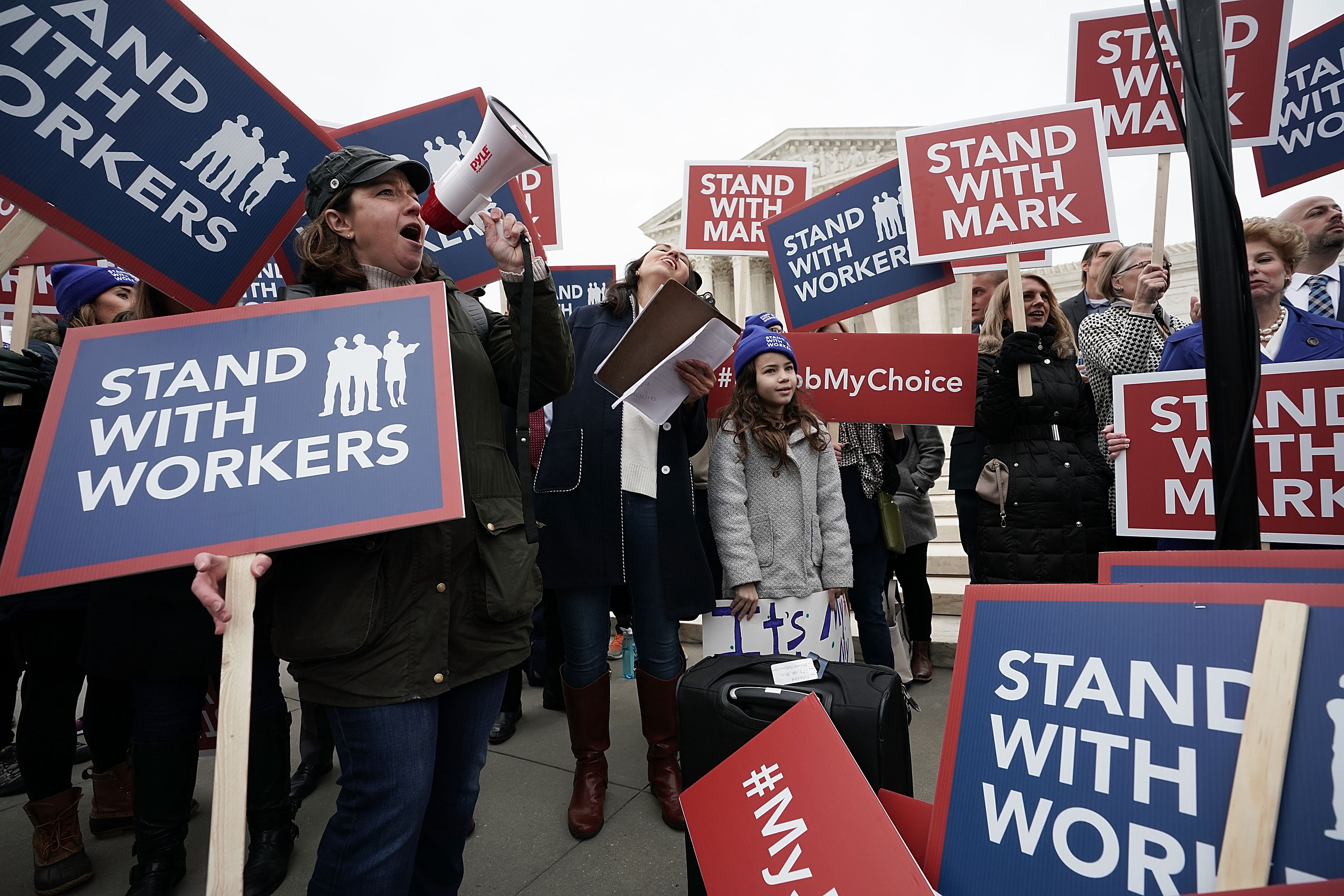Everyone Knows This ...
With so many laws and civil rights provisions protecting employees on paper, the average employee probably thinks that their rights are protected, and that, if there is injustice (such as being fired for no reason at all), there will be some recourse, either within the college or in the court. However, a New York Times column advises a otherwise.
 |
| New York Times, August 3, 2018 |
An anonymous writer asks, “I have a new boss who is very unfair and abrasive to everyone. Hypothetically, would he be allowed to fire me just because he doesn’t like me? And if he did, what could I do legally and procedurally to fight back?”
Rob Walker, the writer of the column The Workologist, answers, “As a legal matter, unless you have an employee contract that says otherwise, he could absolutely fire you because he doesn’t like you…And again, as a legal matter, there’s probably nothing you could do about it.”
Rob Walker, the writer of the column The Workologist, answers, “As a legal matter, unless you have an employee contract that says otherwise, he could absolutely fire you because he doesn’t like you…And again, as a legal matter, there’s probably nothing you could do about it.”
One might think that protected categories, such as discrimination on the basis of gender, race, or disability, would be clear violations and easy to pursue. However, we should not be too rosy about this prospect either. First, claims on protected categories are very difficult to prove. No one says in public, 'I am now firing you because you are Muslim.' Discriminatory actions are usually hidden under other pretexts.
I remember working somewhere where the new employees were being given a tour by the team. I had to go to the bathroom (I was pregnant). While in the bathroom, I heard the man giving the tour say to the other new employees (also all men) that these women employees were trouble because they got pregnant, couldn’t work, and took frequent breaks to go breastfeed. These same men had taken several breaks to go off and smoke on the balcony (not that smoking is a gender-based activity; that isn’t my point). But women who were actually singled out in that organization for going home to nurse were disciplined for taking too long a break, and it would have been difficult to prove that this was a discriminatory measure.
I remember working somewhere where the new employees were being given a tour by the team. I had to go to the bathroom (I was pregnant). While in the bathroom, I heard the man giving the tour say to the other new employees (also all men) that these women employees were trouble because they got pregnant, couldn’t work, and took frequent breaks to go breastfeed. These same men had taken several breaks to go off and smoke on the balcony (not that smoking is a gender-based activity; that isn’t my point). But women who were actually singled out in that organization for going home to nurse were disciplined for taking too long a break, and it would have been difficult to prove that this was a discriminatory measure.
A casual look at cases in the Office of Civil Rights, for example, shows that most cases are dismissed, specifically because a claim cannot be proved. If a case is not outright dismissed, then at least it is such a long drawn out process that an employee might be out the door and living in a trailer for years before his/her case comes to light. The same is true for any legal process – time is not on the worker’s side.
This brings us to the good stuff. Rob Walker says that aggrieved employee should address how an action specifically violates a company policy or the employee contract. Employees should very quickly become conversant with all company policy. In bringing a complaint, the employee must articulate how they are valuable to the organization and express the complaint in terms of how it affects the organization, an argument that Walker calls the bottom-line argument.
Your union is your strength
A new movie, Sorry to Bother You, [go see it!] shows that even the lowliest workers in the worst employment situations do not have to live in misery. Workers must understand the value of their work to the employer (No employer is giving you a job out of kindness. Without your labor, there will be no company). Workers must unionize and they must organize for collective demands. Perhaps in a state like Texas, this is complicated by the right to work law, which effectively stops strikes, but still, law or no law, when employees band together and demand their rights the organization has to respond. Sorry to Bother You shows that this is not easy or straightforward. Workers have to take personal risks and they have to expect retaliation. But in the long run, it is the only way for workers to ensure not only that they are treated fairly now but that their rights won’t continue to dwindle.
Without unions and organization, without push-back from workers, more rights will be taken away. We are so afraid to be visible, to take action and become visible to the powers that be, and yet, most firings and other mistreatment of employees happen under the cover of invisibility. Visibility might be an employee’s best safeguard when workers are organized. The teacher’s strikes in West Virginia, Oklahoma, Kentucky, Colorado, and Arizona show what is possible through unionization, collective bargaining, and disruption. Precisely when labor rights are the lowest and jobs are most vulnerable are the conditions ripest for unions, organizing, and push-back.
Without unions and organization, without push-back from workers, more rights will be taken away. We are so afraid to be visible, to take action and become visible to the powers that be, and yet, most firings and other mistreatment of employees happen under the cover of invisibility. Visibility might be an employee’s best safeguard when workers are organized. The teacher’s strikes in West Virginia, Oklahoma, Kentucky, Colorado, and Arizona show what is possible through unionization, collective bargaining, and disruption. Precisely when labor rights are the lowest and jobs are most vulnerable are the conditions ripest for unions, organizing, and push-back.
There are other practices that could keep one safe. Have everything in writing. Save everything. Even if someone says something verbally, put it in writing, stating in an email: "You had said that you are giving the job to B because he is a guy and we need more guys. Is that correct?” The other very important strategy would be to act immediately if something strange has happened. I, like most people, try to shut out something that seems unfair or strange. But every time I have done that, the incident has come back to haunt me through some backdoor machination. So it is important to immediately put the incident in writing and send off in an email to concerned parties, and to even get witness accounts immediately and put those in writing. One more strategy would be to take note of all violations of policy and contract regularly. If your boss is building a file on you to construct an alternate version of you, you should be building a file as well to track your version of reality.
In another recent movie, The Young Karl Marx, a prophetic critique of capitalist society at its earliest point, when monarchy has just been overturned, Karl Marx is a struggling journalist who gets fired from job after job because of his political work. By the end of the movie, Marx, together with Engels, addresses the league of the just and challenges their slogan “all men are brothers.” Engels asks, “Are the bourgeois and the worker brothers? No, they are not: making the point that the capitalist is not.”
Your boss is not your friend. Your employer is not your keeper. But as long as there is labor, labor can organize.
Your union is your strength.
Your union is your strength.





